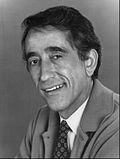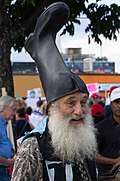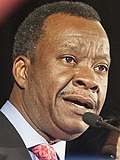| Candidate | Occupation | Current/final political party | Home state | Notable elections lost | Notable results |
|---|
| Jeff Boss |  | Conspiracy theorist, website owner | Democratic |  New Jersey New Jersey | 3 presidential elections (2008, 2012, 2016)
U.S. Senate (2008, 2014)
New Jersey gubernatorial (2009, 2013) | 8.3% in the 2009 New Jersey gubernatorial election Democratic primary |
|---|
| Harry Braun |  | Renewable energy consultant | Democratic |  Arizona Arizona | 4 presidential elections (2004, 2012, 2016, 2020)
2 congressional (1984, 1986) | Democratic nominee for U.S. House, Arizona district 1 in 1984 and 1986 |
|---|
| Mark Callahan |  | Technology consultant | Republican |  Oregon Oregon | 2012 New Hampshire Republican presidential primary
2014 United States Senate election in Oregon
2016 United States Senate election in Oregon
2018 United States House of Representatives elections in Oregon | Republican nominee, 2016 United States Senate election in Oregon
Republican nominee, Oregon's 5th congressional district, 2018 |
|---|
| John H. Cox |  | Businessman, real estate developer | Republican |  California California | Illinois's 10th congressional district (2000)
2002 United States Senate election in Illinois 2008 Republican Party presidential primary
2018 California gubernatorial election
2021 California gubernatorial recall election | Republican nominee, 2018 California gubernatorial election |
|---|
| Jacob Coxey |  | Businessman, landowner | Democratic |  Ohio Ohio | 1932 United States presidential election
U.S. Senate in Ohio (1916, 1928)
Governor of Ohio (1895, 1897)
Congressman from Ohio (1894, 1922, 1924, 1928, 1936) | Mayor of Massillon, Ohio
Farmer–Labor Party nominee, 1932 United States presidential election |
|---|
| Eugene V. Debs |  | Trade unionist | Socialist |  Indiana Indiana | 5 presidential elections:
1900, 1904, 1908, 1912 and 1920 | Indiana State Senate (1885–1889)
6% of popular vote, 1912 United States presidential election |
|---|
| Rocky De La Fuente |  | Automobile dealer | Reform |  California California | 2016 presidential election
2017 New York City mayoral election
10 U.S. Senate elections since 2018
21st California congressional district, 2020 | Reform presidential nominee in 2016 and 2020 |
|---|
| David Duke |  | KKK leader, political commentator | Republican |  Louisiana Louisiana | 2 presidential (1988, 1992)
3 U.S. Senate (1990, 1996, 2016)
1 gubernatorial (1991)
U.S. House (1999) | Louisiana House of Representatives (1989–1992)
Top Republican:
1990 United States Senate election in Louisiana
1991 Louisiana gubernatorial election |
|---|
| Joe Exotic |  | Animal park owner | Democratic |  Oklahoma Oklahoma | 2016 presidential election
2018 Oklahoma gubernatorial election
2020 Libertarian Party presidential primaries
2024 Libertarian Party presidential primaries | 18.7%, 2018 Oklahoma Libertarian Party gubernatorial primary |
|---|
| Jack Fellure |  | Engineer | Republican |  West Virginia West Virginia | Every presidential campaign between 1988 and 2020 | 2012 Prohibition Party presidential nominee |
|---|
| Paul Noel Fiorino |  | Ballet instructor, museum director | Unity |  Colorado Colorado | 2024 United States presidential election
Every Denver mayoral election since 2011
Every Colorado gubernatorial campaign since 2006 | 2024 Unity Party presidential nominee
5.6%, 2015 Denver mayoral election |
|---|
| Howie Hawkins |  | Political executive, blue collar worker | Green |  New York New York | 2006 United States Senate election in New York
New York's 25th congressional district
(2000, 2004, 2008)
3 gubernatorial (2010, 2014, 2018)
2017 Syracuse mayoral election
2020 presidential election | 2020 Green Party presidential nominee |
|---|
| Henry Hewes |  | Real estate developer | Democratic |  New York New York | 1989 New York City mayoral election
1994 United States Senate election in New York
2016 Democratic Party presidential primaries
2020 Democratic Party presidential primaries | New York State Right to Life Party nominee for Mayor of New York City and U.S. Senate |
|---|
| E.W. Jackson |  | Minister, lawyer | Republican |  Virginia Virginia | 2012 United States Senate election in Virginia
2013 Virginia lieutenant gubernatorial election
2018 United States Senate election in Virginia
2024 United States presidential election | Republican nominee, 2013 Virginia lieutenant gubernatorial election |
|---|
| Bob Kelleher |  | Attorney | Republican |  Montana Montana | 1976 Democratic Party presidential primaries
5 gubernatorial (1980, 1984, 1992, 1996, 2004)
3 U.S. Senate (2002, 2006, 2008)
1 U.S. House (1968) | Republican nominee for U.S. Senate in Montana, 2008
Democratic nominee for U.S. House, Montana District 2, 1968 |
|---|
| Alan Keyes |  | Diplomat, political scientist, government official | Republican |  Maryland Maryland | 3 presidential (1996, 2000, 2008)
3 U.S. Senate (1988 and 1992 in Maryland, 2004 in Illinois) | 5% in 2000 Republican Party presidential primaries
3-time Republican nominee for U.S. Senate |
|---|
| Gloria La Riva |  | Editor, activist | Peace and Freedom |  California California | Every presidential campaign between 1984 and 2020
3 gubernatorial (1994, 1998, 2018)
1983 San Francisco mayoral election
California's 8th congressional district (2008) | Peace and Freedom Party presidential nominee, 2016 and 2020 |
|---|
| Lyndon LaRouche |  | Leader of the LaRouche movement | Democratic |  New Hampshire New Hampshire | Every presidential campaign between 1976 and 2004 | Founder of the LaRouche movement |
|---|
| Andy Martin |  | Journalist | Republican |  New Hampshire New Hampshire | 4 presidential (1988, 2000, 2012, 2016)
7 U.S. Senate (1978, 1980, 1998, 2000, 2008, 2010, 2014)
3 U.S. House (1986, 1992, 2018)
2 gubernatorial (1990, 2006)
1977 Chicago mayoral special election | 1996 Republican nominee for Florida State Senate, District 35 |
|---|
| Jimmy McMillan |  | Veteran, activist | Rent Is Too Damn High |  New York New York | New York City mayoral (1993, 2005, 2009, 2013)
New York gubernatorial (1994, 2006, 2010, 2014, 2018)
2012 Republican Party presidential primaries [4]
2017 New York City Council election | Second place finisher, District 2, 2017 New York City Council election |
|---|
| Ralph Nader |  | Lawyer, author, environmentalist | Independent |  Connecticut Connecticut | 4 presidential campaigns (1996, 2000, 2004, 2008) | 3% of popular vote, Ralph Nader 2000 presidential campaign |
|---|
| Pat Paulsen |  | Comedian | Independent |  California California | Every presidential campaign between 1968 and 1996 | 1%, 1992 Republican Party presidential primaries
1%, 1996 New Hampshire Democratic presidential primary |
|---|
| Paperboy Prince |  | Artist | Democratic |  New York New York | U.S. House in New York's 7th district (2020, 2022)
2 New York City Democratic mayoral primaries (2021, 2025)
2024 New Hampshire Democratic presidential primary | Second place, NY-7 Democratic Congressional primary in 2020, 2022 |
|---|
| Joe Schriner |  | Journalist, rehab counselor | Independent |  Ohio Ohio | Every presidential campaign since 2000 | Candidate in the 2020 American Solidarity Party presidential primary |
|---|
| Jerome Segal |  | Philosopher | Democratic |  Maryland Maryland | 2018 United States Senate election in Maryland
2020 presidential election (Bread and Roses Party)
2022 Maryland gubernatorial election
2024 Democratic Party presidential primaries | 3.6%, 2018 Maryland U.S. Senate Democratic primary |
|---|
| Sam Sloan |  | Former broker-dealer, chess executive | Democratic |  New York New York | 2 Gubernatorial elections (2010, 2014)
2 Presidential elections (2012, 2016)
2013 New York City mayoral election
3 congressional elections (2014, 2016, 2020) | Second place finisher, 2014 New York congressional district 13 Democratic primary |
|---|
| Harold Stassen |  | Attorney, military officer, government official | Republican |  Minnesota Minnesota | Every Republican presidential primary between 1944 and 1992, except for 1956 and 1972
U.S. Senate (1978, 1994)
U.S. House (1986)
Governor of Minnesota (1982)
Governor of Pennsylvania (1958, 1966)
1959 Philadelphia mayoral election | Governor of Minnesota (1939–1943)
Chair of the National Governors Association (1942–1943)
Delegate to the 1944, 1948, 1952, 1964, 1968, and 1992 Republican National Conventions |
|---|
| Jill Stein |  | Physician | Green |  Massachusetts Massachusetts | 2012, 2016 and 2024 presidential campaigns
2 Gubernatorial (2002 and 2010) | Member of the Lexington Town Meeting (2005–2010)
Green Party presidential nominee, 2012, 2016 and 2024. |
|---|
| Vermin Supreme |  | Performance artist | Libertarian |  Massachusetts Massachusetts | Every presidential campaign since 2004 | 2020 Libertarian National Convention, third place
His running mate in the 2020 Libertarian primaries, Spike Cohen, became Libertarian vice presidential nominee in the general election |
|---|
| Randall Terry |  | Anti-abortion activist | Constitution |  West Virginia West Virginia | 2012 and 2024 presidential campaigns
New York's 26th congressional district (1998)
Florida State Senate (2006)
Florida's 20th congressional district (2012) | Constitution Party presidential nominee, 2024
18%, 2012 Oklahoma Democratic presidential primary
13% in Florida's 20th congressional district, 2012 |
|---|
| Norman Thomas |  | Minister | Socialist |  New York New York | 6 presidential runs between 1928 and 1948
1 gubernatorial in 1924
1 U.S. Senate in 1934
1929 New York City mayoral election | 6-time Socialist Party presidential nominee |
|---|
| Willie Wilson |  | Businessman | Democratic |  Illinois Illinois | 2016 Democratic Party presidential primary
3 Chicago mayoral elections (2015, 2019, 2023)
2020 United States Senate election in Illinois | 3rd place, 2015 Chicago mayoral election and 2020 United States Senate election in Illinois |
|---|
| John Wolfe Jr. |  | Attorney | Democratic |  Tennessee Tennessee | 2012 Democratic Party presidential primaries
2016 Democratic Party presidential primaries
2018 United States Senate election in Tennessee
Tennessee's 3rd congressional district (1998, 2002, 2004, 2010) | Second place finisher, 2012 Democratic Party presidential primaries |
|---|